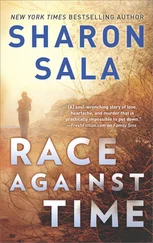I read the news on my me-machine between patients. I drifted over to the front desk, where I sat down next to Connie. She was sorting through a mug full of pens, attaching the correct pen cap to the corresponding pen, and winnowing out those pens that had no caps, had emptied or gone dry, or had accumulated gunk at their ballpoints. It was, as conducted by her, a rigorous and thorough enterprise. Connie always gave the impression of being so sane, but inside her lush blondyed exterior, minor pathologies were operating at code-red level day and night. I expected her to ask me what I was doing there. Was I pestering her? Was I crowding her in her limited space? What did I want? I was holding my me-machine in my hand, unable to speak. The news of Mercer’s death had not yet sunk in. He and I were sitting at a bar together only two weeks ago. He was sitting next to me as I was now sitting next to Connie. He was telling me about the living hell he was in before Grant Arthur showed up to explain the source of his restlessness. He must have soured on that explanation when Wendy Chu brought him together with Mirav Mendelsohn. But why? He knew about Mirav from Grant Arthur. “It’s the first thing he tells you about himself,” he said to me when, at the bar, I asked him about Grant Arthur’s doomed love for the rabbi’s daughter. Grant Arthur made no attempt to conceal the affair. An affair of that sort, of outsize passion and unreasonable longing, was a symptom of the spiritual exile into which men like him had fallen. Didn’t a similar fate await Mercer when he got involved with a Zoroastrian girl? I had intended to talk all this over with Connie when I sat down next to her, but I had not yet said the first thing, and for her part, she had not so much as turned to acknowledge my sudden presence, consumed as she was by the long overdue task of sorting and organizing the pens. I watched her but not really. Mercer had given Wendy explicit instructions to have Mirav tell me the story of her relationship with Grant Arthur, and from that moment forward, I heard nothing more from him. Did he think he was doing me a favor? Did he think of me as a fellow dupe in need of the truth? And what was I supposed to do with his so-called truth — follow him out into the woods with it?
By now, I expected at least a “What?” from Connie, if not a second and more exasperated “What?” followed by a full turn and, at the sight of my shock, a softer “What is it?” But she didn’t turn, and I didn’t speak. Work is supposed to guarantee, just as the city is, that you are never alone, but in retrospect, the day I learned of Mercer’s suicide and went to sit beside Connie was no different from the night I woke to an empty Promenade, when something failed, without warning or premonition, and I was left to my own devices. It was, I thought in retrospect, the same isolation Mercer must have felt on the hard earth with a gun barrel in his mouth, the stupid bastard, wondering who might miss him in the end and concluding that no one would miss him in any meaningful way, his final thought before pulling the trigger. Is that what my father thought in the bathtub when he took his last breath? Was it possible that I could have helped Mercer? Could I have taken ahold of him as we were saying goodbye outside the bar, grabbed his arm and refused to let go, and whispered, in desperate, sodden intimacy, “Doubt! No matter what! He’s hit on some metaphysical truth — who cares how? Run with it! Why not? What choice do you have? Suicide?”
It was really as if no matter what I did, even though I was sitting there doing nothing, I would never elicit Connie’s attention, maybe now no longer merited it. I’d come to sit next to her not only to unburden the news but because I wanted to be near her. For comfort and reassurance, there was really no one else. Yes, there was Mrs. Convoy, but knowing Mrs. Convoy, she would fixate on the nature of Mercer’s death, which was a mortal sin in her eyes, deserving only eternal damnation, and I didn’t care to subject his memory to that kind of sanctimony. But I also chose Connie because Connie rebuked death body and soul. Her charisma, her curls, the little vein on her left temple pulsing with iron and heat — Connie reaffirmed for me in some very basic ways why Mercer acted stupidly by walking out into those woods and killing himself. I took comfort in her proximity, in the loudness of her limbs, in the aura of her hair, in the gesture of her scent, in the stupor of her smile, in the revel of her speech, in the trigger of her mind. I wanted to talk to her about Mercer’s suicide and to take the edge off a sudden, hard fact by the simple act of beholding her. Little did I know that I would sit there, unable to speak, and that she would not turn to me, her mind focused on ordering the pens gone riot inside the first and then the second mug. I was unable to fix on some particular aspect of her beauty that might be of comfort in the immediate wake of Mercer’s suicide. Her beauty seemed irrelevant, unequal to the task or, more distressing still, ineffectual, as if it were lost on me, transcended at last. Had he really walked into the woods and taken his own life, when there was still so much to do? Just do, I thought. Do to occupy, to divert, to ignore, to defy. But he didn’t want to just do. He wanted to be: a Buddhist, a Christian, an Ulm, anything that might connect him to the like-minded, to the equally lost, to the ultimately found. And when he could be nothing but Pete Mercer, alone with his money and his gift for making it, he walked out into the woods with a loaded gun. Why not earlier? I wondered. Why now, after the appearance of Mirav Mendelsohn, and not after his failure with the Zoroastrians, or his disillusionment with Kyoto or his attempted “rechanneling”? It was the compounded delusions and disappointments that did him in. Money and possibility and time — they were nothing without the will. The will was everything, and he’d lost his.
Connie had yet to speak, and I had yet to speak, though we were still sitting there together, as Mercer and I had done that day at the bar. We had just started a friendship, Mercer and I, and now it had gone silent, a silence like the one passing between Connie and me. I was there to unburden, to reaffirm in one generous glance every argument against self-slaughter, and for another reason, too, more primitive and instinctual than even my need to behold her. That reason lay beyond my full understanding at the time, as most things do, but became clearer to me in retrospect. I’m talking about my need to bring someone else into my orbit the second I learned of Mercer’s suicide, to reaffirm my existence through the presence and shared space of another person, to reach out and touch her if I had to, annoy her, flatter her, forgive her, beg her forgiveness, even get her to insult me, anything at all to tell me I was alive and not alone. But during all that time, which must have been a full four or five minutes, not a single word passed between us. She broke off from the last mug abruptly, swiveling away from the desk, and sneezed loudly into her elbow. She waited, preparing to sneeze again, as she always sneezed in pairs. After the second sneeze, she hunted in vain for a tissue. Then she stood and headed for the restroom. I watched the door close behind her. A minute later, I was back in with a patient and unable to stop myself from wondering if she had noticed me out there at all, sitting within arm’s reach. What had stood between us, against us, in those four or five minutes? How had we grown so far apart? It was possible to believe, in the wake of Mercer’s suicide, that what separated the living from one another could be as impenetrable as whatever barrier separated the living from the dead.
But then something happened to dispel that dark thought, and I almost rushed from chairside back to Connie at the front desk, to shout her name and bring us back to life.
Читать дальше












